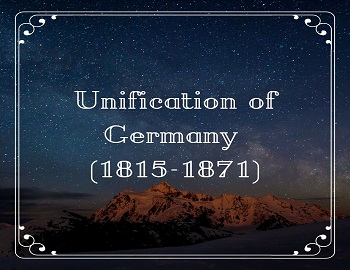Table of Contents
Causes of French Revolution:
French Revolution proved a landmark in the history of Europe and the World. It gave a serious jolt to the “ancient regime” a system based on the privilege of monarchy, nobility and the church. In one sense it was the French Revolution which completed the transition from medieval to the modern age. Before the outbreak of the French Revolution, the political, social, and economic conditions were bad, but no revolution in the world ever takes place for any single cause. Even a number of ordinary reasons do not suffice as contributing to the outbreak of revolution. There must be a set of some vital causes at the back of every revolution. There must be a set of some vital causes at the back of every revolution. The fire of revolution smouldered slowly for a long time and ultimately flared up. The following chief causes were responsible for the outbreak of the revolution in France-
Social Causes of French Revolution:
Though France was the most advanced of all the continental countries in the second half of the 18th century, yet socially it had some glaring defects. French society was divided into three hostile groups- the clergy (the First Estate), the Nobility (the Second Estate) and the Commoners (the third estate)- each with its own privileges.
The First Estate or clergy constituted less than 2% of the French population. The clergy was itself divided into two classes- higher clergy and lower clergy. The higher clergy- archbishops, bishops and lower abbots- often enjoyed great wealth. They had large estates and indulged in luxury and vices without caring for their ecclesiastical duties. But the lower clergy, recruited from the ranks of the commoners, profited little by the privileged position of the order. Constituting about two-third of the order, this group furnished spiritual guidance to the mass of the people.
The Second Estate- the nobles- was divided into three sections- country nobles, official nobility and the nobles of the court (courtiers). The country nobles had small incomes and exacted the utmost farthing from their tenants. The official nobility- some four thousand in all chiefly centred in the Parlement of Paris. They were opposed to the freedom of the press and to all reform. Much more conspicuous were the great nobles, courtiers. Enjoying immense privileges they did nothing but consumed the resources of the bankrupt government.
The third estate was a comprehensive category. At the top were financiers, merchants, officeholders and professionals who had vested interest and some privilege. But many of them suffered from the numerous restrictions on them. The King monopolized salt and other necessary commodities, and manufacturing and trade were minutely regulated by the decree. The gabelle or salt tax was a burden on the common man. But the great bulk of the third estate- more than 20 million– was peasants. The peasants had to pay rent to their feudal lords, tithes to the church and taxes to the king. It has been estimated that a French peasant could count on less than one-fifth of his income for use of himself and his family.
Economic Causes of French Revolution:
The tottering economic structure of France was also one of the main reasons for the outbreak of the revolution. The economic condition of France began to decline from the period of Louis XIV and it went from bad to worse when Louis XVI ascended the throne. There was no control over the expenses incurred by the King and his courtiers. During the period of Louis XVI, the economic crisis thickened when France took part in the War of American Independence. Debt was piling up on France day by day. The heap of debt became so thick in 1788 that the state had to pay more interest than its income. France was gradually sinking into bankruptcy but the ruler did not care for it. Under great compulsion, Louis paid attention to the acute economic crisis only when the state treasury had become empty and the situation had gone out of control. Hence, the king tried to mobilize national income by selling important offices of the government. At last, the king appointed financial experts Turgot, Jacques Necker and Calonne as Director-General of Finances successively.
Turgot (1774-76) was an able economist. He was well-acquainted with the French economy. He tried to implement an intrepid policy of economic improvement by way of making efficient use of land, adopting the policy of laissez-faire, setting a standard of administration and eliminating social disparities. He revoked several restrictions on the trade of foodstuff. He abolished the powerful ‘guilds’ of various industries. He removed the system of forced labour for the construction of roads and imposed a simple tax. Turgot chalked out a four-point programme- no loan, no new taxes, no bankruptcy and curtailment in the state expenses. If his programme had been implemented the economic condition of France would have improved without doubt but it did not so happen. The privileged class turned against Turgot when he moved the proposals for the curtailment of state expenses, reduction of rights enjoyed by the nobility and priest and exaction of taxes from them, revoking the salt tax and grant of monetary aid to peasants. The privileged class approached Queen Antoinette to force Louis XVI to dismiss Turgot from the post of finance minister. Turgot’s dismissal proved detrimental to France.
A rich banker Necker (1776-81) was made Finance Minister a few months after Turgot’s resignation. Because of the burden of massive debt, the economic condition of France went from bad to worse. Under great compulsion, Necker adopted Turgot’s revolutionary project. He put emphasis upon levying taxes on the nobility and minimising the state expenses. It fetched him great opposition. Queen Antoinette reviled him as a miser. Consequently, under pressure from the Queen, the King dismissed Necker in 1781. Later, Calonne (1783-87) was appointed to look into the financial crisis. But he was not able to do anything but to levy fresh taxes.
When France was groaning under heavy debt and deficit, Louis XVI summoned the Council of Notables but the people opposed and suggested that the financial problems could only be tackled by the Estates-General. Hence in 1789, the Estates-General was summoned to decide the financial issue of equal taxation on all the classes.
No doubt, Louis XVI endeavoured his best to improve the economic condition of France and appointed finance ministers, one after the other, but he did not succeed due to the over-much influence of Marie Antoinette, the royal spouse of the King, and the nobles.
Political Causes of French Revolution:
The government of France in the 18th century was a highly centralized despotism. The French monarchs Louis XV and Louis XVI were weak and lacked the essential qualities which could make them great and enlightened rulers. Believing in the Divine Right, the Kings imposed taxes and made laws by royal edicts. The King could issue letters de cachet, a warrant and could keep anybody in prison for any length of time. Justice was administered by a close corporation of lawyers known as Parlements. Of these, the Parlement of Paris was the most important.
The ambitious foreign policy of the Bourbon monarchs in the 18th century had brought France on the verge of bankruptcy. The Seven Year War had resulted in the loss of the French colonies. The French intervention in the American War of Independence had brought prestige but it was purchased at the supreme sacrifice of immense treasury.
Intellectual Causes of French Revolution:
In French Revolution, the philosophers are supposed to have played a significant role. Philosophers gave phrase and proverbs to the revolution so in one sense they gave legitimacy to the revolution. French philosophers made an attack over “ancient regime”. For example-
- Voltaire (1694-1778), who was a great exponent of individual freedom made a severe attack on the autocratic nature of the French monarchy, the stupidity of nobility and superstition of the church.
- Likewise, Diderot composed an encyclopedia in which even the scholars like Rousseau made a contribution. Diderot advocated for individual freedom. He criticized French society.
- Furthermore, a great scholar Montesquieu (1689-1755) tried to establish that in order to ensure individual freedom the separation of power among the executive, legislative body and the judiciary is essential. He expressed his view in his famous magnum opus “Spirit of Laws“.
- The most revolutionary among the philosophers was Jean Jacques Rousseau (1712-1778). Napoleon once declared that if Rousseau had never lived there would have been no revolution. The influence of his books The Social Contract (1762) and Discourse, was profound. His principal theory was that man was essentially good, but corrupted by civilization. ‘Man is born free, but everywhere he is in chains’. All government was the outcome of an agreement of contract framed by the people for the promotion of their welfare. Hence all government rests upon the consent of the governed and no ruler can deprive the individual citizen of his natural rights to life, liberty and property. It was Rousseau who made famous the doctrine of “popular sovereignty“. Above all, he inspired men to believe in democracy and equality and seemed to open to the individual a new world.
The revolutionary ideas of these philosophers spread throughout France and created awareness among the masses. The French intellectuals gave the motto “Liberty, Equality and Fraternity”which became the watchwords of the revolution of 1789.
![Causes of French Revolution [1789] 1 Causes of French Revolution](https://gkscientist.com/wp-content/uploads/2021/05/Causes-of-French-Revolution.jpg)








Comments (No)